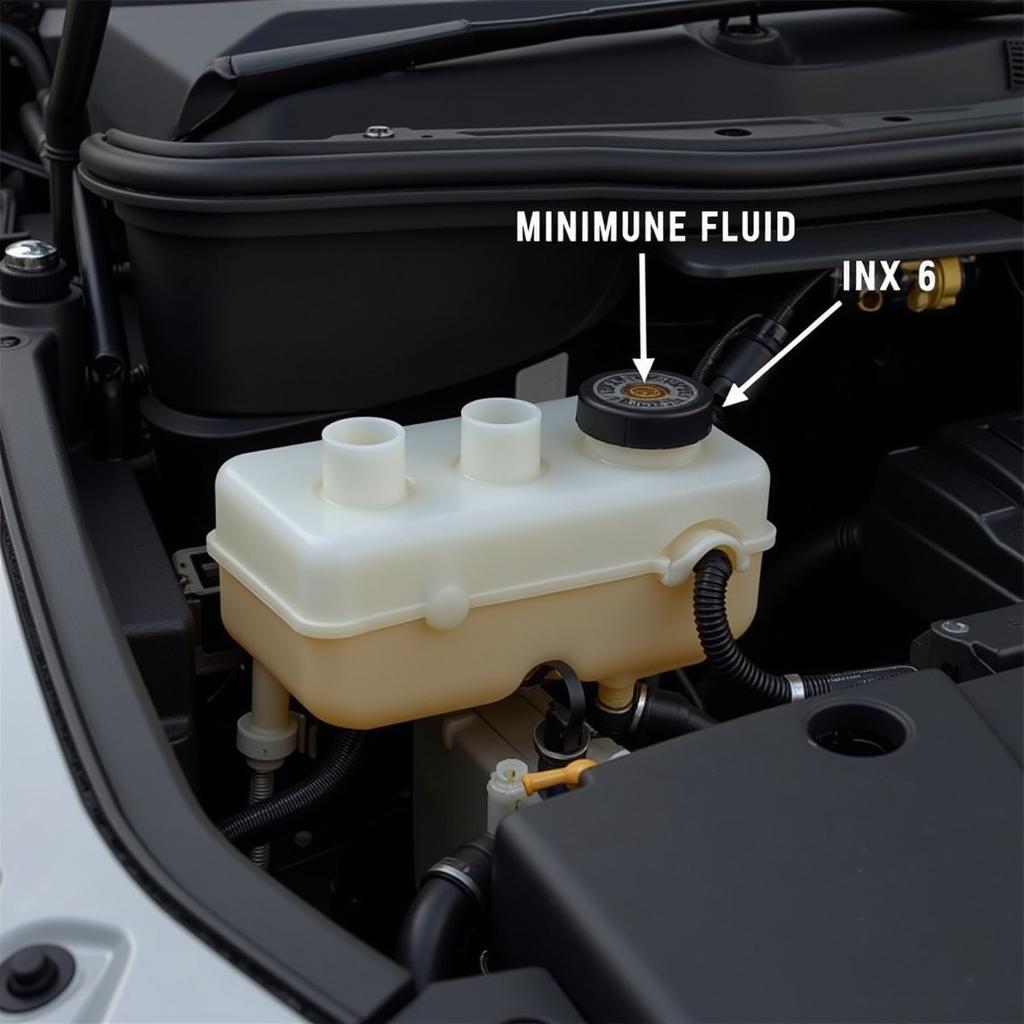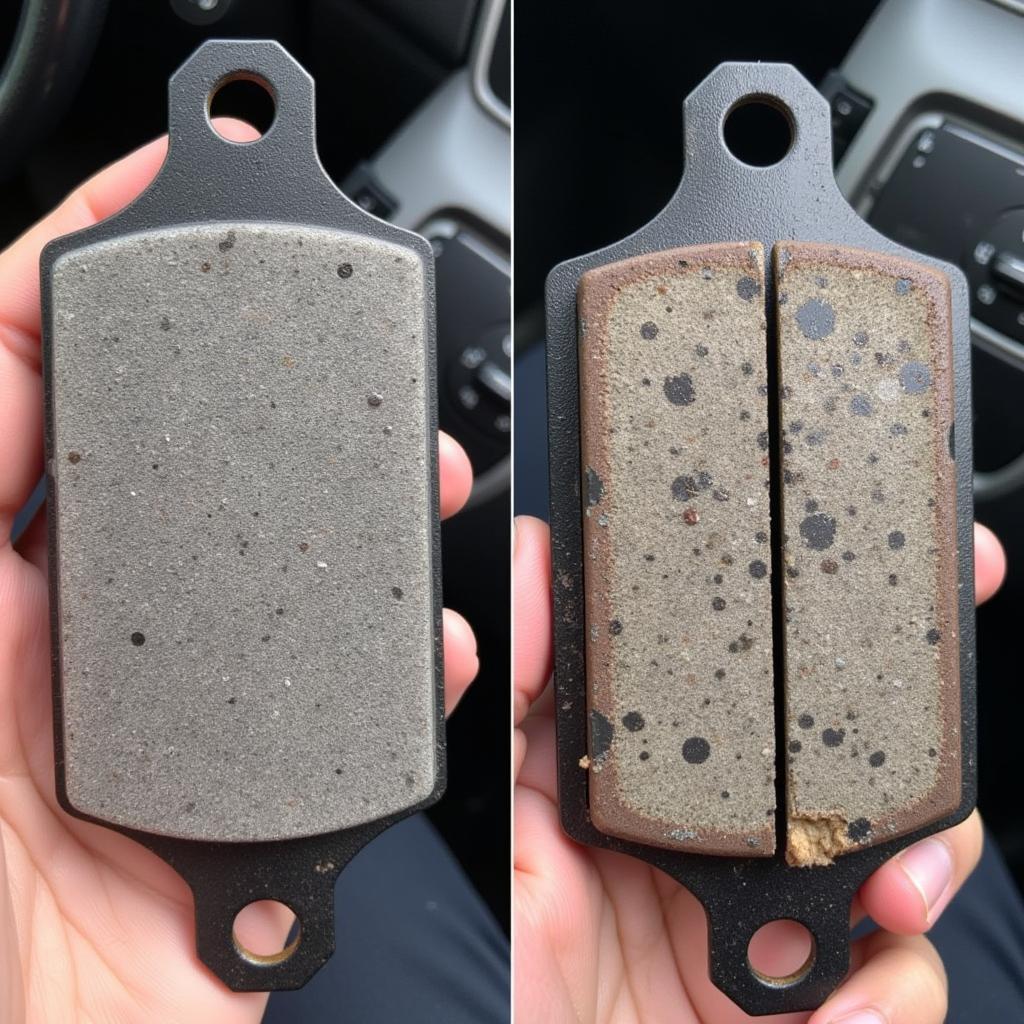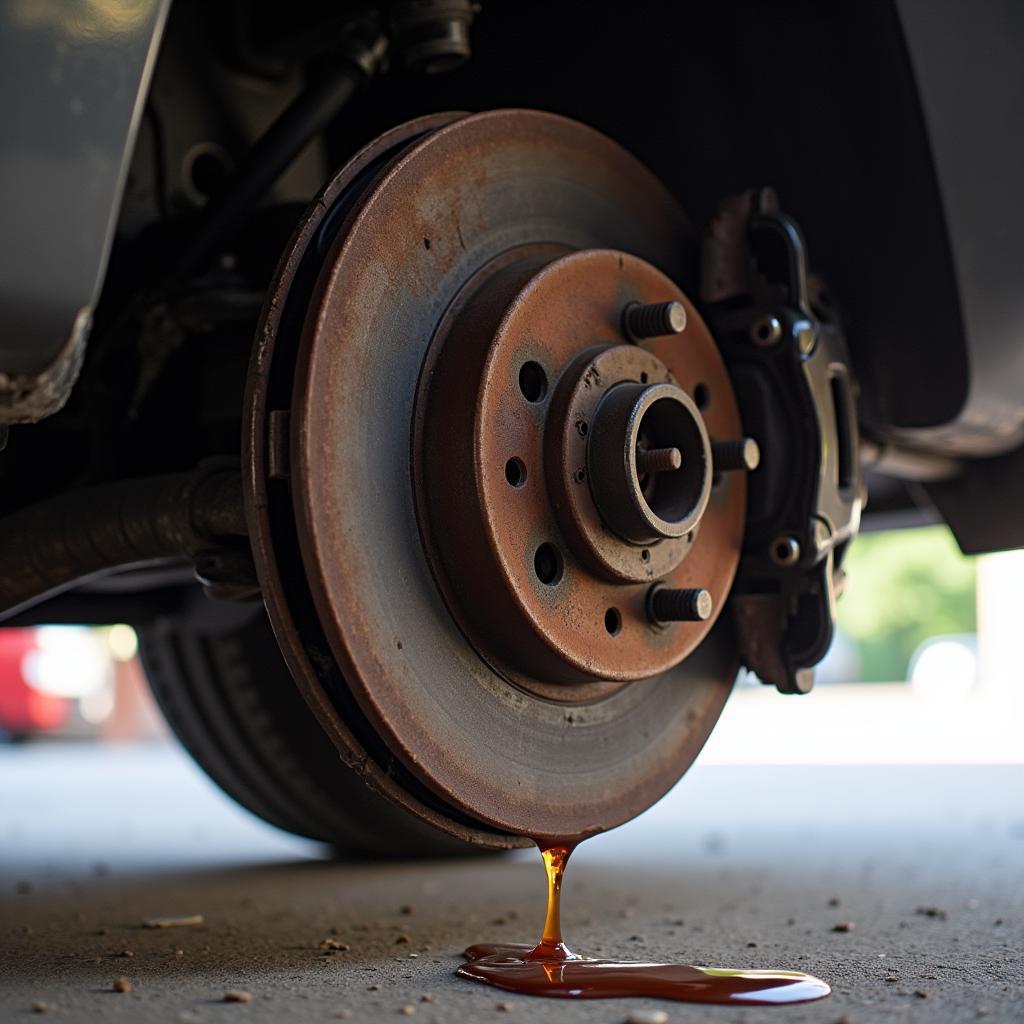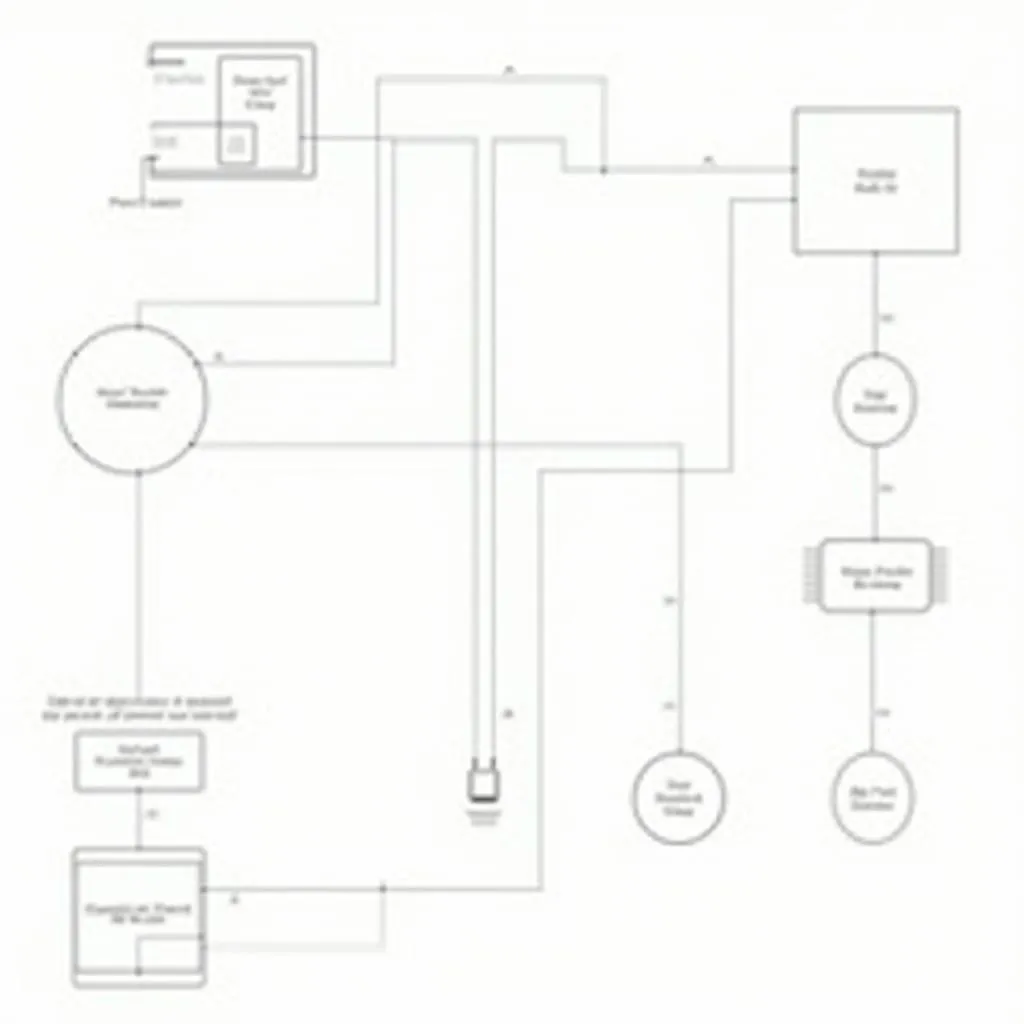The brake fluid warning light on your Ford Explorer dashboard is a crucial safety indicator. When illuminated, it signals a potential problem with your vehicle’s braking system that requires immediate attention. Ignoring this warning could lead to reduced braking performance, increasing the risk of an accident. This comprehensive guide will delve into the common causes of the Ford Explorer brake fluid warning light and provide you with the necessary steps to diagnose and address the issue.
Understanding Your Ford Explorer’s Braking System
Before we troubleshoot the warning light, it’s helpful to grasp the basics of how your Ford Explorer’s braking system operates. The system is hydraulic, meaning it uses brake fluid to transmit force from the brake pedal to the wheels, enabling your vehicle to slow down and stop. The brake fluid warning light is directly connected to the brake fluid reservoir. When the fluid level in the reservoir drops below a certain point, the warning light will illuminate, alerting you to a potential problem.
Common Causes of a Ford Explorer Brake Fluid Warning Light
Several factors can trigger the brake fluid warning light in your Ford Explorer. Let’s explore some of the most frequent culprits:
1. Low Brake Fluid Level
The most common reason for the warning light is a low brake fluid level. Brake fluid can diminish over time due to leaks in the braking system or as the brake pads wear down.
 Ford Explorer Brake Fluid Reservoir
Ford Explorer Brake Fluid Reservoir
2. Worn Brake Pads
As your Ford Explorer’s brake pads wear down, the brake calipers need to push further to engage the rotors. This action draws more brake fluid from the reservoir, potentially triggering the warning light.
 Worn Brake Pads Ford Explorer
Worn Brake Pads Ford Explorer
3. Brake Fluid Leak
A leak anywhere within the braking system – brake lines, hoses, calipers, or wheel cylinders – can cause the brake fluid level to drop, activating the warning light.
 Brake Fluid Leak Ford Explorer
Brake Fluid Leak Ford Explorer
4. Faulty Brake Fluid Level Sensor
While less common, a malfunctioning brake fluid level sensor can also trigger the warning light, even if the brake fluid level is adequate.
Diagnosing the Problem: What to Do When the Warning Light Comes On
If the brake fluid warning light illuminates while driving your Ford Explorer, it’s crucial to take immediate action:
- Safely pull over: Find a safe location to stop your vehicle as soon as possible.
- Check the brake fluid level: With the engine off, carefully open the hood and locate the brake fluid reservoir. It’s typically a translucent plastic container with a black cap.
- Inspect for leaks: Visually examine the area around the reservoir and the brake lines for any signs of fluid leaks. Brake fluid is typically clear to light brown and has an oily consistency.
- Avoid driving: If the fluid level is low or you suspect a leak, do not attempt to drive your Ford Explorer. Contact a qualified mechanic or tow your vehicle to a repair shop.
Can I Add Brake Fluid to My Ford Explorer Myself?
While it might seem tempting to simply top off the brake fluid, it’s crucial to understand that doing so will not address the underlying issue. Adding brake fluid is a temporary solution and should only be done if you’re confident in your ability to identify and address the root cause. If you’re unsure, it’s always best to consult a professional.
Ford Explorer Brake Fluid Warning Light: Frequently Asked Questions
Here are answers to some frequently asked questions about the Ford Explorer brake fluid warning light:
-
Q: Is it safe to drive with the brake fluid warning light on?
A: No, it is not safe to drive with the brake fluid warning light illuminated. This indicates a potential issue with your braking system, which could lead to reduced braking performance and an increased risk of an accident. -
Q: How often should I check my Ford Explorer’s brake fluid level?
A: It’s good practice to check your brake fluid level at least once a month and more frequently if you notice any changes in your brake pedal feel or responsiveness. -
Q: Can I use any type of brake fluid in my Ford Explorer?
A: No, it’s crucial to use the correct type of brake fluid specified in your Ford Explorer’s owner’s manual. Using the wrong type of fluid can damage the braking system and compromise its performance. -
Q: How much does it cost to fix a brake fluid leak in a Ford Explorer?
A: The cost of repairing a brake fluid leak can vary widely depending on the leak’s location, the severity of the issue, and labor costs in your area. It’s always best to obtain a quote from a qualified mechanic for an accurate estimate. -
Q: How can I prevent brake fluid leaks in my Ford Explorer?
A: Regular brake inspections and maintenance, including brake fluid flushes and replacements, can help prevent brake fluid leaks and ensure your Ford Explorer’s braking system remains in optimal condition.
Don’t Ignore the Warning
The brake fluid warning light in your Ford Explorer is a critical safety indicator that should never be ignored. By understanding the common causes, taking prompt action, and seeking professional assistance when needed, you can help ensure your safety and the optimal performance of your vehicle’s braking system.

